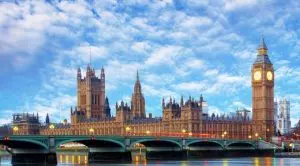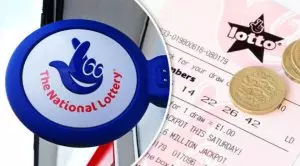 The UK gambling watchdog came under criticism by British politician Julian Knight who accused it of attempting to obstruct his enquiry into the regulator’s role in lottery oversight. MP Julian Knight, who was elected as Chair of the Digital, Culture, Media, and Sport Committee (DCMS Committee) in early 2020, claims the UK Gambling Commission (UKGC) is overstepping its power after it said his enquiry endangered the probity of the bidding process for a new National Lottery license.
The UK gambling watchdog came under criticism by British politician Julian Knight who accused it of attempting to obstruct his enquiry into the regulator’s role in lottery oversight. MP Julian Knight, who was elected as Chair of the Digital, Culture, Media, and Sport Committee (DCMS Committee) in early 2020, claims the UK Gambling Commission (UKGC) is overstepping its power after it said his enquiry endangered the probity of the bidding process for a new National Lottery license.
MP Knight received a letter from UKGC’s Chief Executive Mr. Andrew Rhodes where he claimed that providing evidence to the enquiry would “pose as a significant risk” to all parties directly involved in the bidding process. Mr. Rhodes expressed his belief that it would be in the public interest if the Commission provides the evidence requested in the enquiry once the bidding process for a new lottery license comes to an end.
The Chair of the parliamentary committee was outraged at the letter and accused the regulator of demonstrating contempt of parliament. The regulatory authority has no right to obstruct the enquiry, according to Mr. Knight. The MP is seriously contemplating calling the UKGC in front of the DCMS Committee to explain the letter unless the agency abandons the idea of interfering with the enquiry.
The Members of the British Parliament have already pressured the regulatory body to attest it can continue serving its function of a gambling watchdog as the local industry is preparing for major legislative changes due in 2022. The UKGC has been subject to criticism on behalf of the National Audit Office (NAO) and the Committee of Public Accounts. Both parliamentary entities have accused the Commission of being unfit to serve its purpose, suggesting that its regulatory role should be reevaluated.
News came in this past month that MP Knight and the DCMS Committee intend to probe into UKGC’s role in overseeing the National Lottery. The gambling regulator is presently overseeing the bidding process for awarding the next National Lottery license with a ten-year validity.
Licence Applicants Had to Sign Confidentiality Agreements
 The UKGC recently announced it plans to delay the bidding process yet again. As a result, the current license holder, the Camelot Group, had its license contract extended for half a year. Camelot has been running the lottery since its inception back in 1994.
The UKGC recently announced it plans to delay the bidding process yet again. As a result, the current license holder, the Camelot Group, had its license contract extended for half a year. Camelot has been running the lottery since its inception back in 1994.
All license candidates involved in the bidding process had to sign confidentiality contracts before they were allowed to participate in the race for the next lottery license. The applicants involved in the competition include the Italian Sisal, Sazca from the Czech Republic, and Northern & Shell, a British publishing group owned by Richard Desmond.
All applicants are disallowed to publicly speak in criticism of the current license holder Camelot. Violating this condition could result in the applicants being kicked out of the competition by the UKGC. After MP Knight started his enquiry, the regulator said it intends to warn the license applicants to not share any information regarding the competition or else they would breach their confidentiality agreements. The UKGC said at the time running a transparent and fair competition was its priority.
- Author


